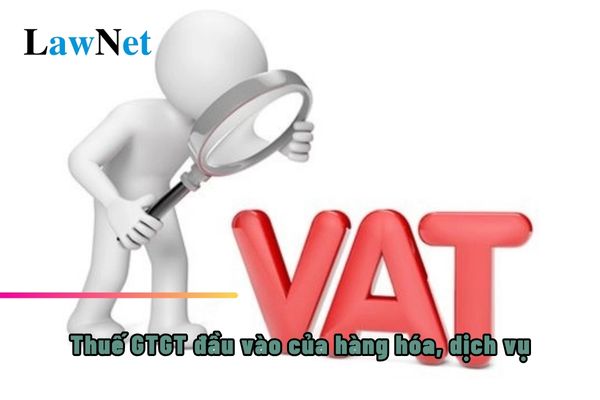Can Input VAT of goods and services for production be deductible in Vietnam?
Can input VAT of goods and services for production be deductible in Vietnam?
The principle of deducting input Value-Added Tax (VAT) is stipulated in Clause 1, Article 14 of Circular 219/2013/TT-BTC (amended and supplemented by Clause 9, Article 1 of Circular 26/2015/TT-BTC) as follows:
Principle of deducting input VAT
1. Input VAT of goods and services used for the production and trading of goods and services subject to VAT is fully deductible, including input VAT not compensated for VATable goods that suffered losses.
Cases of uncompensated losses that are deductible for input VAT include: natural disasters, fires, losses not covered by insurance, degraded or expired goods that must be disposed of. The business entity must have complete records and documents to prove the cases of uncompensated losses for VAT deduction.
...
Thus, it can be seen that input VAT of goods and services used for the production and trading of VATable goods and services is fully deductible, including input VAT not compensated for VATable goods that suffered losses.
*Note: Import VAT will be deductible if it satisfies conditions for deducting input VAT of goods and services as follows:
- There is a valid VAT invoice or tax payment document for VAT at the import stage;
- In cases where the invoice for imported goods exceeds 20 million VND, there must be non-cash payment documents;
Except in cases where the value of each import shipment is under 20 million VND, goods purchased each time according to the invoice under 20 million VND including VAT, and in cases where the business entity imports goods as gifts from foreign organizations or individuals.
- There are documents proving the transfer of money from the buyer's account to the seller’s account opened at organizations providing payment services according to payment methods in compliance with current legal regulations. (According to Clauses 1 and 2, Article 15 of Circular 219/2013/TT-BTC (amended by Clause 10, Article 1 of Circular 26/2015/TT-BTC and Article 1 of Circular 173/2016/TT-BTC)).

Can Input VAT of goods and services for production be deductible in Vietnam? (Image from Internet)
What are cases where imported goods are non-deductible for input VAT in Vietnam?
Imported goods subject to VAT do not qualify for input VAT deduction in cases stipulated in Clause 15, Article 14 of Circular 219/2013/TT-BTC as follows:
- VAT invoices that are not compliant with the law, such as VAT invoices not showing VAT (except in specific cases allowed to use VAT invoices showing prices that already include VAT);
- Invoices not specifying or incorrectly specifying any criteria such as name, address, tax code of the seller, making it impossible to identify the seller;
- Invoices not specifying or incorrectly specifying any criteria such as name, address, tax code of the buyer, making it impossible to identify the buyer (except in cases guided in Clause 12, Article 14 of Circular 219/2013/TT-BTC);
- Fake VAT invoices or tax documents, erased invoices, and dishonest invoices (no accompanying goods or services);
- Invoices reflecting values not matching with the actual values of goods, services purchased, sold, or exchanged.
To which agency is import VAT paid in Vietnam?
The location for paying import VAT is stipulated in Article 20 of Circular 219/2013/TT-BTC as follows:
Place of tax payment
1. Taxpayers declare and pay VAT at the locality where production and business are conducted.
2. Taxpayers declaring and paying VAT by the deduction method having dependent accounting production units located in a different province or centrally-run city from the head office must pay VAT at the locality where the production unit and the head office are located.
3. In cases where enterprises or cooperatives applying the direct method have production bases in provinces or cities other than where their main office is located, or have itinerant sales activities outside the province, the enterprise or cooperative must declare and pay VAT on out-of-province revenue at the location of the production base or itinerant sales. Enterprises or cooperatives are not required to pay VAT on out-of-province revenue that has been declared and paid at the main office.
...
Thus, according to the above provisions, import VAT is paid to the local tax authority where production and business take place.
- Taxpayers declaring and paying VAT by the deduction method having dependent accounting production units located in a different province or centrally-run city from the head office must pay VAT at the locality where the production unit and the head office are located.
- In cases where enterprises or cooperatives applying the direct method have production bases in provinces or cities other than where their main office is located, or have itinerant sales activities outside the province, the enterprise or cooperative must declare and pay VAT on out-of-province revenue at the location of the production base or itinerant sales.
Enterprises or cooperatives are not required to pay VAT on out-of-province revenue that has been declared and paid at the main office.

